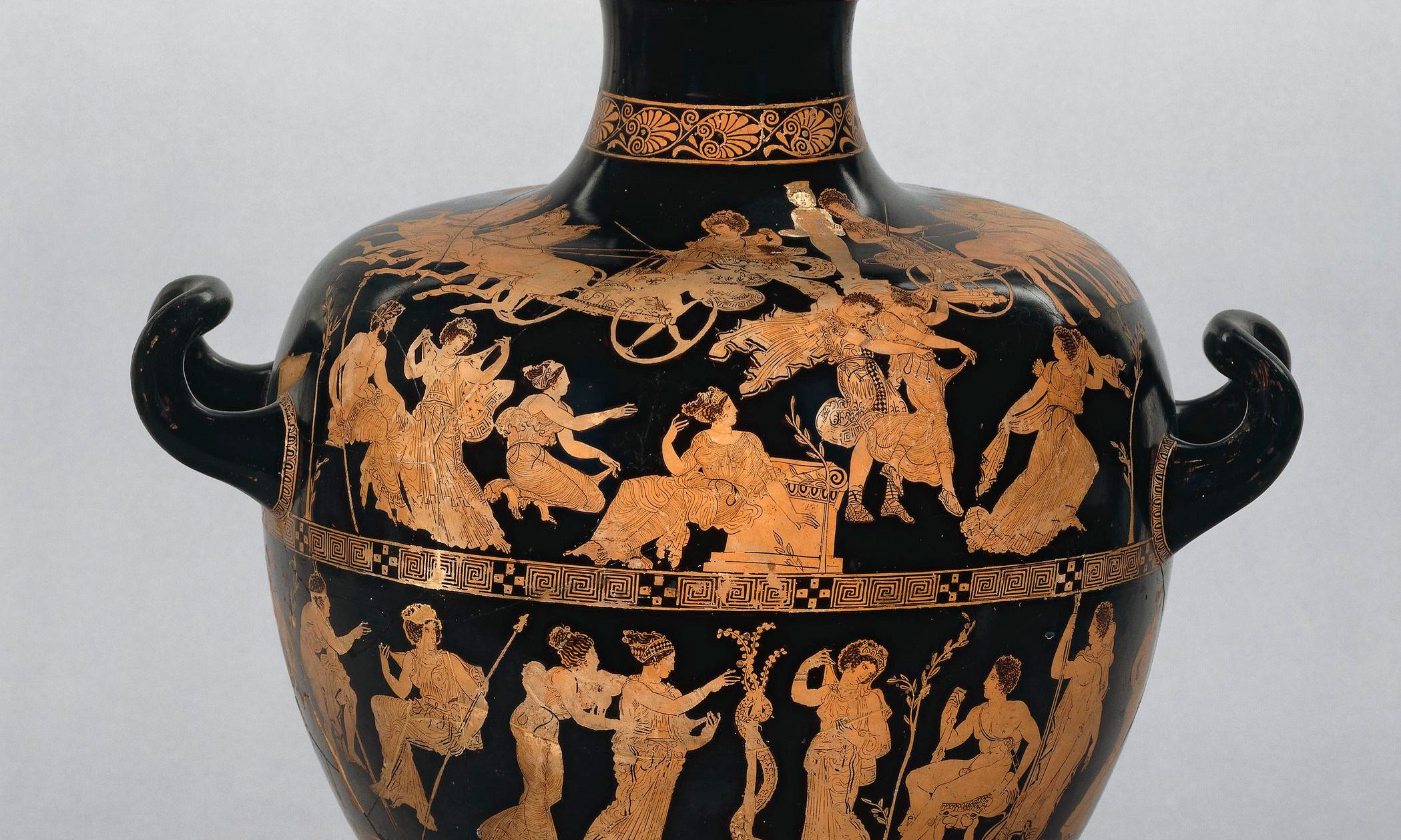Meidias Hydria, Athenian red-figure hydria (water vase) signed by Meidias, about 420 BC, excavated in Italy
© Trustees of the British Museum
The British Museum is to lend an important Greek vase to the Acropolis Museum in Athens. This comes at a time when George Osborne, the chairman of the British Museum, is hoping to reach an amicable arrangement with Greece over the return of some of the Parthenon Marbles.
The Meidias Hydria is a painted water vase dating from 420 BC. Just over 50cm high, it is the masterpiece by the vase-painter known as the Meidias artist, after his signature on the British Museum’s pot. It is decorated with mythological scenes, including a series depicting Heracles, the god of strength.
The vase was bought in Italy in the 1760s by William Hamilton, the British envoy to Naples and antiquarian. It prominently appears in the lower-right corner of a Reynolds portrait of Hamilton (now at London’s National Portrait Gallery).
In 1772, the Meidias Hydria was acquired by the British Museum. It has normally been on display and this is the first time in 250 years that it has ever been out on loan.
The exhibition at the Acropolis Museum, entitled Meanings: Personifications and Allegories from Antiquity to Today, runs from 4 December to 14 April 2024. The museum’s main attraction is the Parthenon Marbles which remain in Greece. If some of the British Museum’s Marbles were to return, they would be presented there.
After the Athens presentation the Meidias Hydria will go to Paris, for display in the Musée du Louvre’s exhibition Olympism: A modern invention, an ancient legacy (24 April-16 September 2024).
A British Museum spokesperson points out that the loan of the Meidias Hydria is part of the ongoing partnership with Greek museums.

